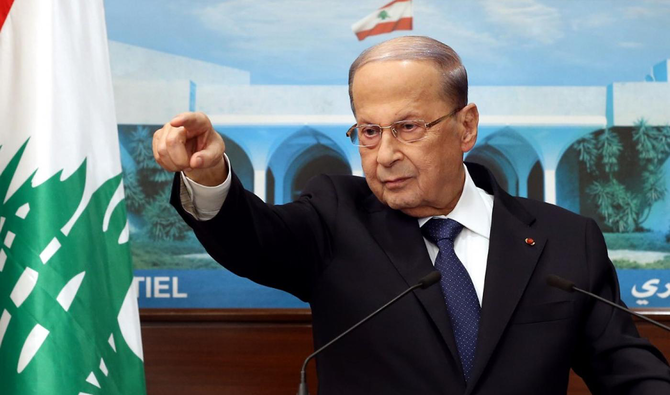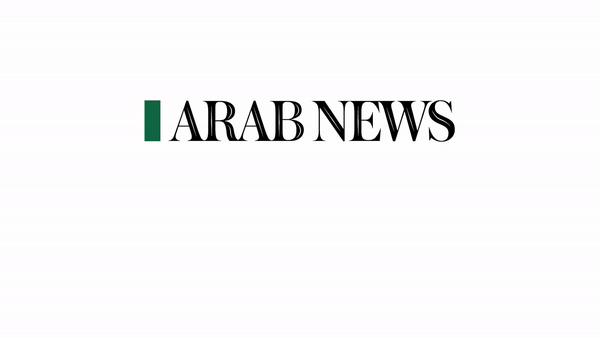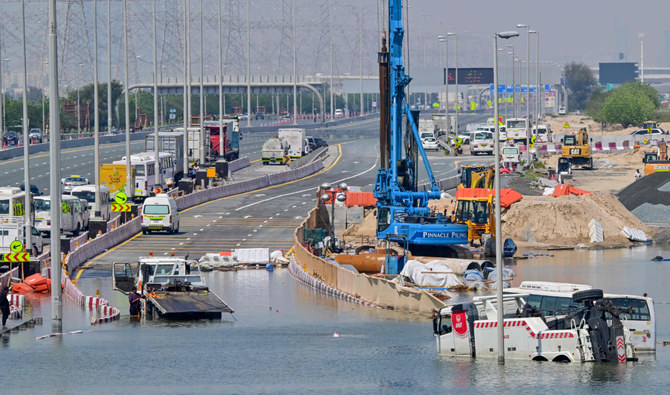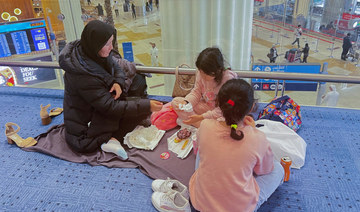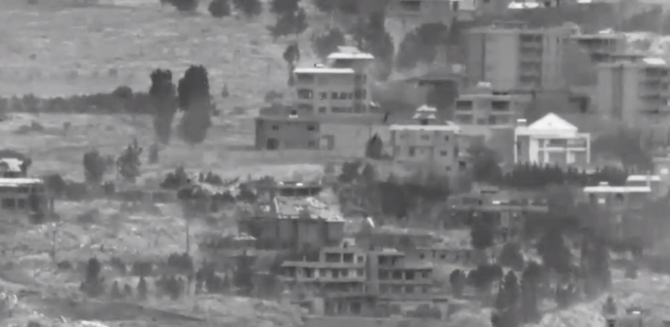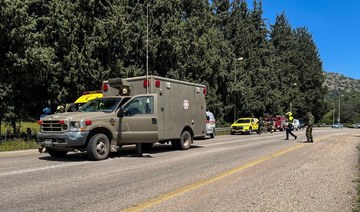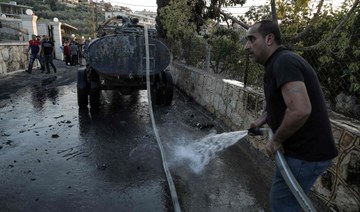BEIRUT: On Oct. 31 Lebanese President Michel Aoun completed four years in office with another two remaining before his term ends, amid the country’s ever-plummeting fortunes. Aoun himself recently warned that Lebanon was going to hell if a new government could not be formed to resolve the nation's many woes.
The Lebanese pound has collapsed and living conditions have nosedived. The percentage of the population suffering from extreme poverty increased from 8 percent in 2019 to 23 percent in 2020. A devastating explosion in Beirut in August and the ongoing coronavirus health crisis has compounded the nation’s problems.
The middle class is increasingly shrinking due to the loss of bank savings and the rising migration of young Lebanese and families, especially from the Christian community.
Weekly calls from the Maronite Patriarch Bechara Al-Rai to preserve Lebanon’s neutrality and the vision behind the country’s establishment fall on deaf ears.
In Lebanon, the president’s mandate is divided into three parts. The first part is usually known as the “golden period” for every leader. The second part is usually characterized by calm and a decline in production momentum.
The last two years turn into a difficult period due to the increase in political disputes and the competition of candidates to succeed.
However, despite the criticisms directed at Aoun's era, loyalists believe he has “made strength from weakness and restored prestige to the presidency.”
They list his achievements as including the preparation of an annual budget after a 12-year hiatus, combating corruption by preparing various draft laws, Lebanon’s accession to the UN Convention, approving the law on the right to access information, dealing with oil and gas exploration in regional waters, and tackling the issue of Syrian refugees.
The approval of a new electoral law based on proportional representation is hailed as another achievement which, according to these loyalists, led to the representation of political forces and parties according to their true size.
But MP Mohammed Al-Hajjar, from the Future bloc, said that Aoun’s past four years had not lived up to expectations.
“The election law did not pass without it being approved by the Future Parliamentary Bloc because the bloc and the Future Movement are concerned with holding parliamentary elections,” he told Arab News. “As for the talk about fighting corruption, it is just nonsense, because the reality shows horrific practices. Moreover, the obstacles that have been placed and are still facing the formation of governments and causing a vacuum were not in the interest of the administration.”
He said the administration had not built strong external relations and that it was attempting to create new norms that were far from the constitution.
The secretary-general of the Progressive Socialist Party, Zafer Nasser, said that the first four years of Aoun's era were characterized by political instability and an economic and social collapse.
“The political process that the administration practiced and is now practicing appears as if it does not want to learn from the lessons of the past four years,” he told Arab News. “Lebanon’s foreign relations are severed with the Arabs and the West, and Aoun has been doing the opposite of what he promised. It seems that nothing is going to change in the next two years.”
There had been full cooperation since the start of Aoun’s era, he added, but “political maliciousness” had disrupted everything. “The administration doesn't have to raise buzzing slogans about fighting corruption and reform while it is practicing the opposite. The reality on the ground is a sign of failure, and the Lebanese in the next two years will live the path of Golgotha.”
Naufal Daou, a member of the Lady of the Mountain opposition gathering, said it was “shameful” that Aoun's loyalists had spoken about the achievements made by his administration during the past four years.
“There is no stone, pound, human, hospital, group, company, and bank left in Lebanon,” Daou told Arab News. “Administrations are usually evaluated according to their internal, economic and foreign policies. Foreign policy was a disaster, and domestic politics was full of conflicts. As for economic policy, it is a complete collapse.”
He said that Aoun had come to power with near-unanimous backing but that this consensus and support, which was meant to be for the benefit of the whole country, had been handed over to Hezbollah.
He added that settlements and understandings had been interwoven with quotas over portfolios and positions, with no clear rules for domestic and foreign policy.
“Hezbollah told Aoun: ‘You take the presidential seat and we run the country's foreign and defense policy.’ Prime Minister (Saad) Hariri told him: ‘You take the presidency and I take the premiership.’ And the Lebanese Forces agreed with him on parity in the Christian seats in the government, parliament, and the public administration.”
Daou said there was no need to anticipate what awaited the Lebanese in the next two years. “Aoun, who has the data, told us that we are going to hell.”



